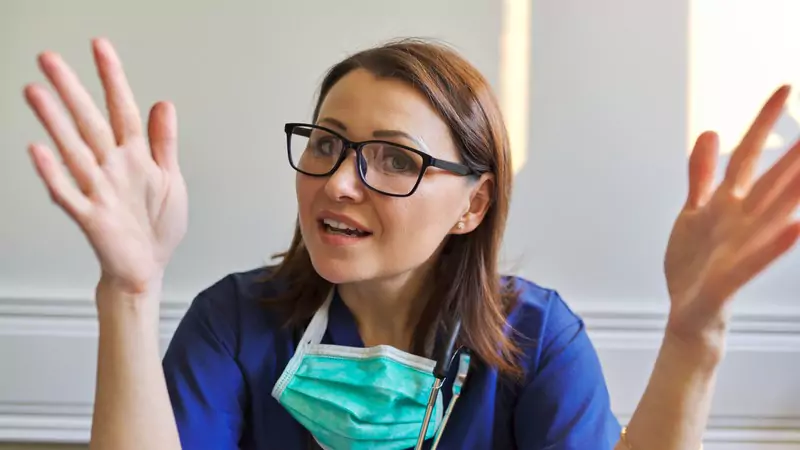Key Points
- Many patients use the internet to self-diagnose, which can both help and worry healthcare providers.
- Nurses see online symptom checking as a double-edged sword: it can prompt faster medical visits or fuel needless panic.
- Inaccurate or incomplete web information often leads to misconceptions and stress.
- Nurses use empathy and clinical data to separate fact from fiction.
- Open communication and trust are vital for guiding patients toward reliable care.
- Googling symptoms can be a starting point, but it should never replace professional evaluations.
- Using reputable sites and talking to healthcare experts is the safest route to accurate health advice.
Beyond The Search: Understanding Nurses’ Views On Self-Diagnosis

These days, it’s almost impossible to resist typing our aches and pains into a search engine, hoping for quick answers. Nurses often see patients who arrive with a head full of “I read online…” stories, which can be both helpful and frustrating at the same time.
On one hand, it’s great that people are taking charge of their health, but on the other, Google results can lead to panic or confusion if the information isn’t accurate. By looking into how nurses actually feel about these self-diagnoses, we can learn how to merge online curiosity with professional expertise for safer, smarter healthcare decisions.
The Rise Of Online Symptom Checking

Lately, more people are turning to online symptom checkers because it feels fast, easy, and private. Whether it’s a suspicious cough or a random ache, a simple search can yield dozens of possibilities, from the mundane to the extreme. Nurses recognize that these tools can sometimes motivate patients to see a doctor sooner, but they also know the internet doesn’t always paint the full picture.
That’s why they urge caution and encourage everyone to balance online findings with real-life medical advice, since websites rarely account for detailed health histories or individual lifestyles.
Common Misconceptions From Online Searches

One big drawback of searching symptoms online is the abundance of incomplete or exaggerated info floating around. Websites often dish out broad explanations that don’t factor in your personal history, making it easy to jump to worst-case scenarios, while forum stories can be even scarier, focusing on rare or extreme cases that might not reflect most people’s experiences.
Nurses know that while the internet can be helpful for general knowledge, it can also trigger unnecessary alarm, especially when common symptoms overlap across multiple conditions and cause confusion. That’s why they urge patients to see these online insights as starting points, not final diagnoses, because a proper medical evaluation is always the safer bet, factoring in all the nuances a website can’t capture.
How Nurses Respond To Self-Diagnosis

When someone walks in saying they’ve diagnosed themselves online, nurses know how to strike a balance between hearing them out and guiding them toward clarity. They listen closely to patients’ concerns, acknowledging the effort it takes to do any research at all. Then, by comparing that internet-based info with real clinical data, they help sort fact from fiction.
This friendly, collaborative approach not only ensures proper treatment but also eases any anxiety sparked by misleading online details, reassuring patients that professional care is still the most reliable path and showing them that real-life expertise beats a one-size-fits-all internet checklist every time.
Building Trust Between Nurse And Patient

Open communication is the secret sauce that keeps nurses and patients on the same page, especially when Dr. Google is involved. Nurses make a point of inviting patients to share their concerns, no matter how out-there they may seem, because feeling heard is half the battle.
When patients see that their nurse truly cares, they’re more likely to reveal their fears and ask questions they might’ve otherwise kept private. This sense of partnership goes a long way in dispelling internet-fueled confusion, proving that face-to-face expertise can bring clarity and comfort in ways a search engine simply can’t, and it’s a genuine reminder that beyond the screen, empathy and expertise form the backbone of real healing.
Benefits And Drawbacks Of Googling Symptoms

In some ways, googling symptoms can be a proactive move, pushing people to book appointments sooner rather than brushing off potential red flags. It can also spark better conversations with doctors and nurses, since patients might arrive with specific questions already in mind.
However, there’s a darker side to all that internet digging: sensational headlines and worst-case scenarios can fan the flames of worry, making a manageable issue feel like a dire emergency. That’s why nurses emphasize using online info wisely—treat it as a launch pad for deeper discussion, not a replacement for professional input, because a quick search can only go so far before trained medical insight becomes essential.
Tips For Responsible Online Health Research

For people who love to read up on their health, choosing trusted websites is a must—think official medical centers or credible health organizations with up-to-date information. Double-checking publication dates and references can help weed out outdated articles that could lead you astray.
Nurses also recommend talking to a real healthcare professional about any concerning findings, because symptom checkers rarely account for personal factors like family history, stress levels, or existing conditions. In other words, the internet can be a handy sidekick in your health journey, but it should never replace the real-life expertise you get in a clinic or hospital.

